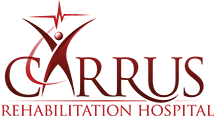
Sports injuries can be a nightmare for athletes and fitness enthusiasts alike. From minor strains and sprains to more severe issues, these setbacks can significantly affect an individual’s performance and well-being. Thankfully, physical therapists are here to help diagnose, treat, and develop personalized rehabilitation programs that cater to different needs.
You can find out more here about the role of physical therapy in managing sports injuries and how it could benefit you if you’re experiencing pain or reduced function from a sports injury, such as a strain or sprain.
The Importance of Physical Therapy in Sports Injuries
Unfortunately, injuries during sports play are common. Whether it’s a twisted ankle, overuse injury, or a direct blow to the body, all types of injuries can result in discomfort and time out from the activities you enjoy.
When it comes to sports injuries, the primary goal is often to minimize pain, improve function, and ultimately return to regular activities as quickly and safely as possible. This is where physical therapy can help, offering an effective, non-surgical solution to a vast array of sports-related injuries and conditions. It can also be useful for patients following surgery or when other factors, such as a chronic disease, make healing more difficult.
The Role of a Physical Therapist
A physical therapist is a licensed professional trained to diagnose, treat, and prevent musculoskeletal injuries, making them an essential part of the recovery process for athletes and active individuals. They incorporate many different aspects in their role, including:
- Diagnosis: A physical therapist will conduct a thorough evaluation to identify the specific injury, its severity, and the root causes. This may include tests to assess strength, flexibility, balance, endurance, gait, range of motion, and any sensory deficits.
- Treatments: Based on the diagnosis, a physical therapist will recommend various treatments to address pain, inflammation, and any functional limitations. Some common treatment options include manual therapy, therapeutic exercises, and modalities such as ultrasound or electrical stimulation.
- Personalized Rehabilitation Program: Physical therapists create personalized rehabilitative programs tailored to each individual’s unique needs, helping patients regain strength, improve flexibility, and correct movement patterns that may have contributed to their injury.
- Ongoing Support and Education: Part of a physical therapist’s role is to help patients understand their injury and recovery process, providing guidance for at-home exercises and ways to prevent future injuries.
Types of Sports Injuries and Personalized Treatments
Physical therapists treat a wide range of sports injuries, each requiring unique rehabilitation programs. Some common examples include:
- Sprains: Refers to injuries to ligaments, the tissue connecting bones together. These can range from mild (slight stretching) to severe (complete tears). A physical therapist can help reduce inflammation, restore joint mobility, and guide patients through exercises to regain strength and stability.
- Strains: Refers to injuries to muscles or tendons, the fibrous tissue connecting bones to muscles. Similar to sprains, these can vary in severity. A physical therapist will implement strategies for pain relief and prescribe strengthening and stretching exercises to restore function.
- Fractures: Broken bones are often the result of high-impact or repetitive stress injuries. In some cases, physical therapy is utilized after the fracture has been stabilized or healed to assist with regaining range of motion, strength, and functional abilities.
- Tendonitis: Refers to inflammation of a tendon, often caused by overuse or improper technique. A physical therapist will help identify the causative factors and prescribe exercises to promote healing, improve biomechanics, and prevent future occurrences.
Physical therapy plays a crucial role in the management and recovery of sports injuries. By working closely with patients, physical therapists develop personalized rehabilitation programs that target specific areas of concern for each individual. This approach promotes faster and safer healing, helping athletes return to their sport or regular activities with confidence and reduced risk of re-injury. So, if you’re struggling with an injury, remember that physical therapy can help you get back on track and achieve optimal health and performance.
Physical Therapist in Sherman, TX
If you have a sports injury such as a strain or sprain, don’t hesitate to consult a physical therapist for a tailored treatment plan that addresses your unique needs. For expert care, visit the board-certified physical therapists at Carrus Health Rehabilitation Hospital.
Our dedicated providers will diagnose your condition, before creating a personalized rehabilitation program designed to help reduce your symptoms and improve your mobility and strength as quickly and safely as possible.
For high quality medical care, choose Carrus Specialty and Rehabilitation Hospital. We are a diverse healthcare organization that delivers personalized healthcare and a variety of medical services to patients with a wide range of health conditions. To find out how we can assist your health needs, call us today at (903) 870-2600. You can also send us a message using our contact us page. Our physical therapists welcome your call!

